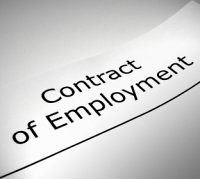

Tis' the season for seasonal and temporary jobs to be filled, so it is important that employers protect the health and safety of gig economy, agency and temporary workers.
For health and safety purposes, gig economy workers should be treated no differently to other workers and will often identify as agency or temporary workers, or self-employed.
The types of work carried out by gig, agency and temporary workers can lead to issues beyond what might be considered normal workplace hazards, due to:
These can have adverse health consequences for workers such as musculoskeletal disorders, stress, tiredness and fatigue.
Protect new starters
Workers are just as likely to have an accident in their first six months at work as they are during the rest of their working life. This risk is increased because of:
This can cause new workers to:
The Health and Safety Executive (HSE) provides advice on how to protect new starters. They suggest employers:
Health and safety responsibilities of users and suppliers of agency and temporary workers
For agencies and businesses who use gig, temporary, seasonal or agency workers, the day-to-day responsibility for health and safety during that period lies with the end user businesses, because they will direct the work and control the premises where it takes place.
They are in the best position to manage the health and safety of the worker and anyone else that could be affected by their work.
The HSE states that before work the employment agency or employment business must:
During the work placement the HSE say it is important to be clear on who does what and never assume someone else will take responsibility for workplace safety. Therefore an ongoing collaboration between the end user business, the supplier and the worker will help ensure safety responsibilities are always clear.
Accident reporting
If there is a reportable incident under the Reporting of Injuries, Diseases and Dangerous Occurrences Regulations (RIDDOR) SI 2013/1471 in the workplace involving a gig, agency or temporary worker, there is a duty to report it.
If the worker is employed by the employment agency, they are the legal employer and have the same legal obligations as any other employer to report accidents and ill health to their employees.
In other cases, the duty is on the end user business to report accidents as they are in control of the premises where an accident occurs.
Your health and safety as a gig economy, agency or temporary worker
All workers are entitled to work in an environment where the risks to their health and safety are properly controlled. If you are a gig, agency or temporary worker then your health and safety is protected by law and employment businesses/agencies have a duty to make sure that they follow it.
Workers responsibilities include: